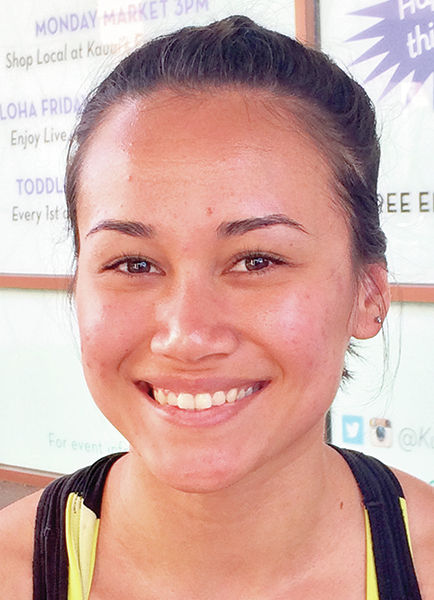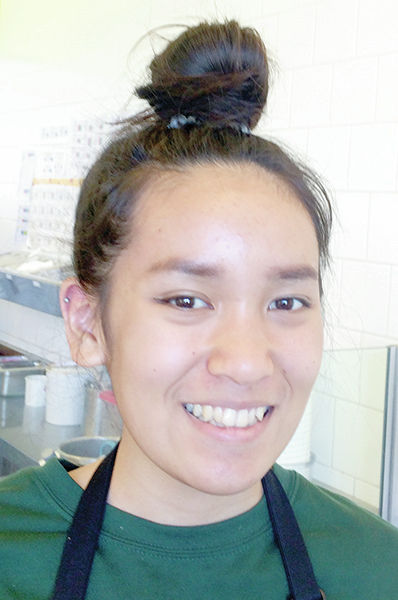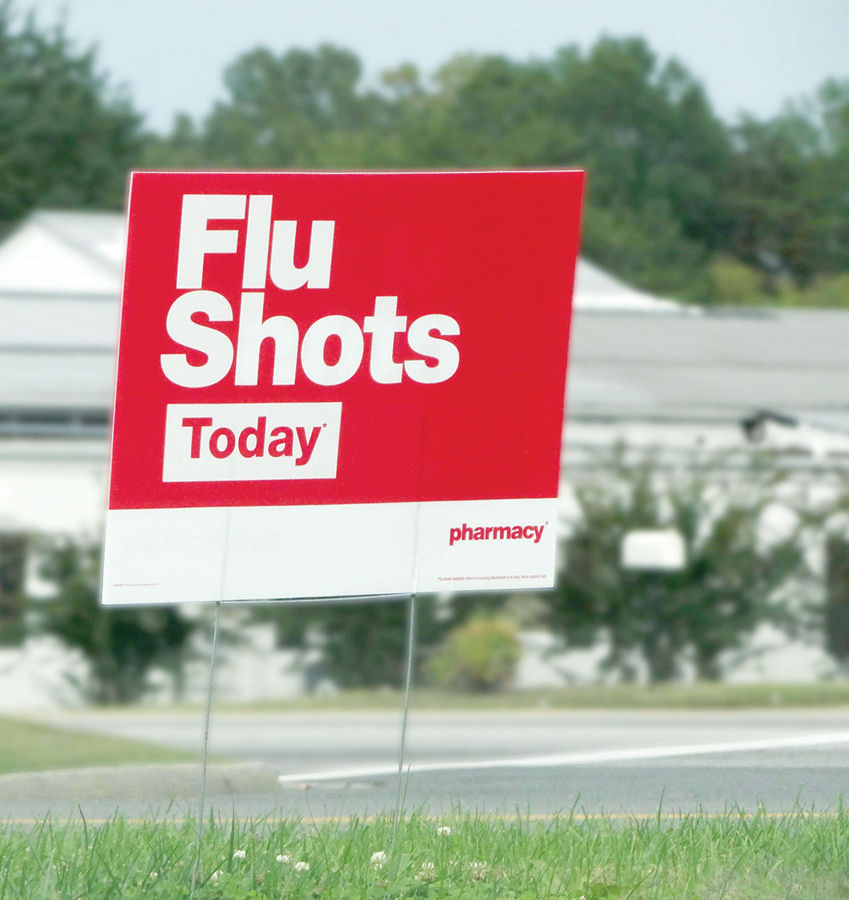LIHUE — Carlie Cawaring has been sick for a week and she’s just now getting over what she is pretty sure was the flu. She’s not the only one that she knows who caught the bug, either. “Everyone around me
LIHUE — Carlie Cawaring has been sick for a week and she’s just now getting over what she is pretty sure was the flu. She’s not the only one that she knows who caught the bug, either.
“Everyone around me seems to be getting it,” Cawaring said, “And I didn’t get a flu shot.”
Taking that extra step could have eliminated a week of achiness, fever, coughing and general misery Cawaring said, but she’s not entirely sure it would have kept her from getting sick.
“I used to always get the flu shot and I always get sick after, so I didn’t get one this year,” Cawaring said. “Then I got sick anyway. I’ll probably get the shot after I get done being sick this time around.”
Keanna Ramos, from Hanapepe, said she hasn’t gotten her flu shot either, but her two-year-old son, Taj, has gotten his. Neither of them has been sick this season, and Ramos said she doesn’t know anyone who has gotten this round of the flu.
She said she’s just been putting off getting the flu shot for herself. Ramos’ friend, Jahna Alvarez, from Koloa, said she hasn’t gotten the flu shot either
“It’s just procrastination,” Alvarez said. “I don’t think about it, like, it’s not something you wake up in the morning and you’re worried about going to get your flu shot.”
Ramos, Alvarez and Cawaring aren’t the only ones who have been dragging their feet on getting the flu shot. On Tuesday afternoon, six out of six people interviewed in Lihue hadn’t gotten their flu shots.
It should be higher on the priority list, according to the Department of Health. Those officials say procrastination isn’t the best strategy when it comes to the flu.
They monitor statewide flu activity, not countywide, because of the “relatively small population” of Hawaii, Melissa Viray, deputy state epidemiologist, said. The state releases a weekly report on the status of the flu and other respiratory virus.
The department hasn’t seen an increase in flu cases, but they expect an uptick soon, Viray said.
“Now is the time for folks to get their flu shot,” Viray said. “The best way not to get the flu is to get your vaccination.”
Viray said the department is expecting an increase in flu cases in Hawaii because traditionally, there’s a jump in those cases just after the holidays.
“Every year things are a little bit different, but we tend to see an uptick shortly after people come back from vacation on the Mainland or elsewhere,” Viray said.
The trends show that Hawaii’s flu season peaks about a month after it does on the Mainland. Generally, on the Mainland, flu season runs from October to March, with cases straggling on throughout May.
“The (Center for Disease Control) is showing a slight uptick right now, not a whole lot, just a little bit,” Viray said. “We’re waiting because we usually lag a few weeks behind the Mainland.”
Even though the bulk of flu cases fall within the season, there’s always a trickle of flu cases that are reported because of the high amount of traffic coming to and leaving the islands.
“It comes with the territory of being a tourist destination,” Viray said.
Two kinds of flu shots are available that are touted to guard against the flu — one that’s injected and one that goes up your nose. The Department of Health doesn’t favor one over the other.
“Everyone is going to have to talk to their healthcare provider to see what’s best for them,” Viray said. “It depends on your age and medical conditions, et cetera.”
A list of places to get your flu shot is available online at the Hawaii Department of Health website.
On Kauai, flu shots are available at Foodland stores in Kapaa and Princeville, Longs Drugs in Kapaa, Lihue, Poipu, and Eleele, at the Safeway pharmacy in Kapaa and Lihue and at island hospitals and clinics and other sites.
“The bottom line for us is that we want people to get vaccinated,” Viray said.
Beyond the flu vaccination, there are other ways to safeguard yourself from getting the virus. Practicing proper sneeze and cough etiquette, like covering your mouth with your elbow, and constantly washing your hands will help.
“People touch their faces all the time and don’t realize it,” Viray said. “Wash your hands before you eat, after the bathroom and before you touch your face.”
Viray recommends that if you get sick, stay home.
“It’s a hard one to do and people have jobs and kids and school, they have lives, but the best thing to do to stop it from spreading is to stay home,” Viray said. “As much as possible, stay home when you’re sick.”




